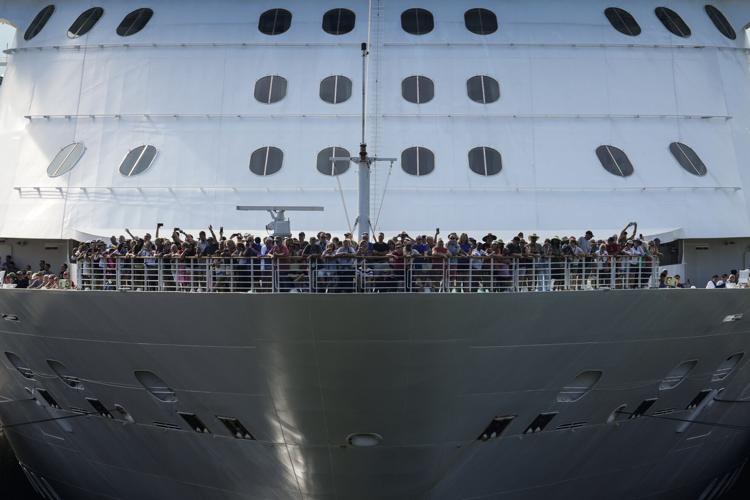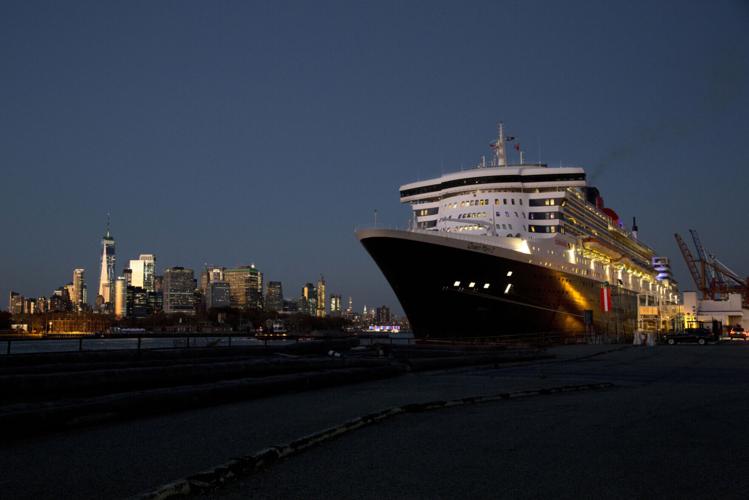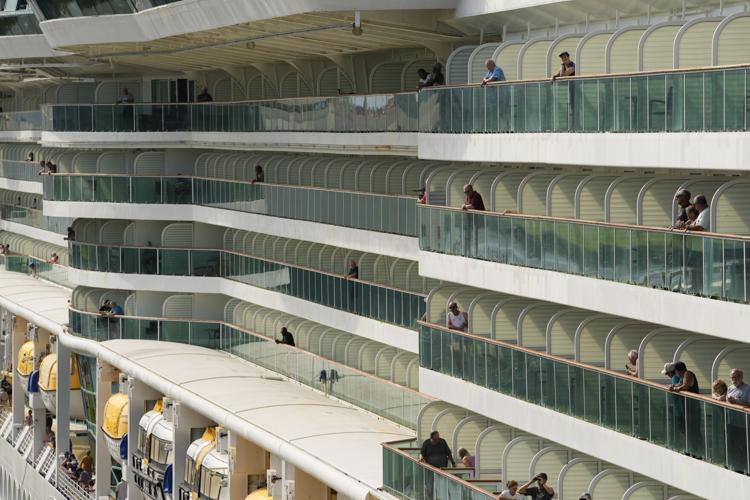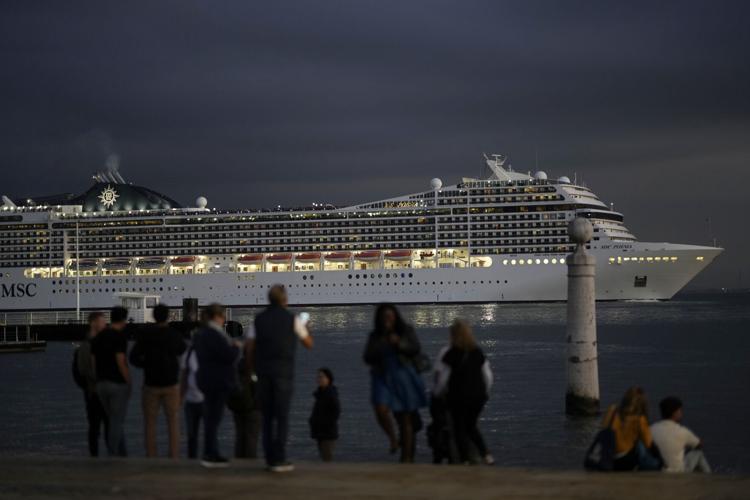For Americans planning cruise ship vacations this spring or summer, there could be reason to worry about more than rough seas, experts say.
Recent government cuts included top staff at the Vessel Sanitation Program, which is run by the U.S. Centers for Disease Control and Prevention and conducts inspections and investigates illnesses.
The reductions, part of larger Trump administration cuts, come amid a surge in cruise ship outbreaks fueled by a new strain of norovirus.

Passengers stand Oct. 7 on the Brilliance of the Seas as the cruise ship approaches the Miraflores Locks in Panama City.
So far this year, 16 illness outbreaks were reported on cruise ships in the CDC's jurisdiction, mostly from norovirus, compared with 18 outbreaks in all of 2024 and 14 in 2023, VSP reports show. U.S. officials conducted nearly 200 inspections of 150 ships last year.
"Certainly it's something that would be on my mind if was getting ready to get on that cruise ship," said Donald Schaffner, a food science expert at Rutgers University.
People are also reading…
U.S. Health Secretary Robert F. Kennedy Jr. launched a restructuring of the nation's health agencies in April. The move eliminated the CDC's Division of Environmental Health Science and Practice, which housed the cruise ship vessel program, along with others focused on asthma, air quality, lead exposure in children and other issues.
Four full-time CDC staff, including scientists, were dismissed, said Erik Svendsen, the division's fired former director. The program also employed 12 U.S. Public Health Service commissioned officers, who remain. However, they lack the expertise of the scientists who were let go, he said, and the program already was understaffed.
A CDC spokesperson said the VSP work "has not stopped."

The Queen Mary 2 prepares to depart the Red Hook Terminal in the Brooklyn borough of New York.
Here's what to know:
How often do passengers get sick?
About 18 million people board cruises in North America each year, part of nearly 32 million passengers worldwide, according to the Cruise Lines International Association, an industry trade group. Cruise industry officials say the chance of contracting a gastrointestinal illness is far greater on land than on a ship.
Norovirus is the most common ailment tracked on ships, though other outbreaks occur.
Of the 19 million to 21 million norovirus illnesses that occur each year in the U.S., less than 1% are tied to cruises, said Lee-Ann Jaykus, a North Carolina State University food microbiologist and virologist who studied norovirus.
Still, cases can mean misery for many hundreds of people on ships who come down with symptoms that include vomiting, diarrhea and stomach pain that can last three days, according to the CDC.
Norovirus is highly contagious, often spread by food or on surfaces, particularly in crowded conditions. It is a short-lived illness for many people but can be dangerous for those with underlying health conditions, young children and those aged 65 and older.

Passengers stand on the balconies of the Brilliance of the Seas cruise ship Oct. 7 as the vessel approaches the gates of Miraflores Locks in Panama City.
What about the new strain?
There are many different types of norovirus, but typically one dominant strain causes illness outbreaks, Jaykus said.
This year a new epidemic strain emerged, called GII.17. It circulated at low levels for years but was behind a surge in U.S. outbreaks this past winter.
Between Aug. 1 and April 9, more than 2,400 suspected or confirmed norovirus outbreaks were reported to a CDC monitoring system, roughly double for the same period a year earlier. The GII.17 strain was responsible for nearly 80% of them, the CDC reported.
"It's new to the population," Jaykus said, which means most people don't have immunity, so the germ can spread more widely.

People watch MSC Poesia sail down the Tagus River on Nov. 19 as the cruise ship departs Lisbon.
How can I avoid sickness?
People infected with norovirus typically shed "billions of viral particles," Schaffner said. It only takes a few to make someone sick.
If people get sick on a cruise ship, they're required to report the illness and isolate themselves, but many fail to do so.
"You spent all this money for a fancy cruise and you're feeling a little bit under the weather, so you tough it out," Schaffner said. "But in the meantime, now you spread the virus."
Passengers should be alert for signs of illness, even in other travelers.
Vomit can spread norovirus particles into the air, Schaffner noted. If you see someone vomit, "immediately walk away from them, ideally into the wind," he said.
Washing hands frequently is key, especially after using the bathroom or before eating and drinking. Using soap and water is best; wash for at least 20 seconds, scrubbing well. Hand sanitizer alone doesn't work well against norovirus, the CDC notes.
Cruise lines have extensive sanitation protocols that are monitored through the CDC's vessel program, which the industry pays for through inspection and other fees that total tens of thousands of dollars per ship per year.
It remains to be seen how cuts to the program will affect inspections and outbreak investigations, Schaffner said.















